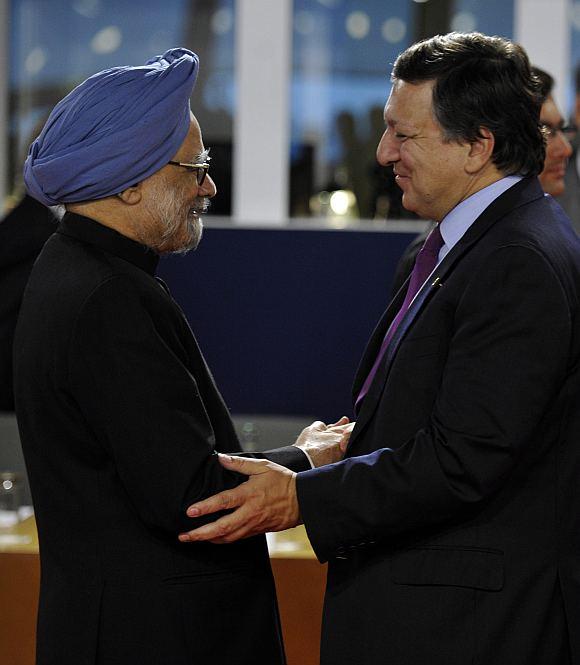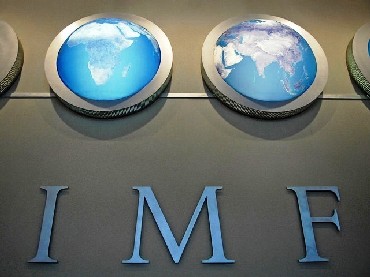 | « Back to article | Print this article |
Emerging economies are not immune to shocks: IMF
Emerging economies have done well through global financial crisis and have better policies now, but they are not fully immune to future shocks, a new IMF report has said.
There is a significant risk that advanced economies could experience another downturn, said the World Economic Outlook report released on Thursday.
In such an event, it said, emerging market and developing economies will likely end up 'recoupling' with advanced economies, much as they did during the global financial crisis.
Click NEXT to read further. . .
Emerging economies are not immune to shocks: IMF
Domestic vulnerabilities could also re-emerge, as strong credit growth in some emerging market and developing economies, which likely supported domestic demand, raises concerns about financial stability, it added.
The report has listed countries like India, China, Korea, Malaysia and Thailand among emerging market economies.
According to the report, there are reasons for optimism, including improved policymaking and greater 'policy space' -- room to respond to shocks without undermining sustainability.
Click NEXT to read further. . .
Emerging economies are not immune to shocks: IMF
But the recent good performance has also been supported by factors which are fickle, such as strong capital inflows, rapid credit growth, and high commodity prices, it said.
The resilience of emerging market and developing economies has increased markedly during the past two decades, it said, adding that they are spending more time in expansion, and downturns and recoveries have become shallower and shorter.
"The performance of the past decade was particularly good -- it was the first time that emerging market and developing economies spent more time in expansion, and had smaller downturns, than advanced economies," it said.
Click NEXT to read further. . .
Emerging economies are not immune to shocks: IMF
However, these economies have not become immune to shocks, it added.
"Various shocks, both external and domestic, are associated with the end of expansions in these economies."
The IMF report said, "Among external shocks, sudden stops in capital flows, advanced economy recessions, spikes in global uncertainty, and terms-of-trade busts all increase the likelihood that an expansion will end."
On economic policies of emerging economies, it said that more of them have adopted inflation targeting and flexible exchange rates, and fiscal and monetary policies are now more 'counter-cyclical' than in the past -- they stimulate or rein in the economy as needed.
Click NEXT to read further. . .
Emerging economies are not immune to shocks: IMF
"They also have more room to manoeuvre, thanks to lower inflation and better fiscal and external positions than in the past.
"Better policies and greater policy space account for three-fifths of the increased duration of their expansions.
"Less frequent shocks accounts for the remainder: while some shocks such as spikes in global uncertainty have become more frequent, other shocks such as banking crises and credit booms have become less frequent in these economies," the report said.




